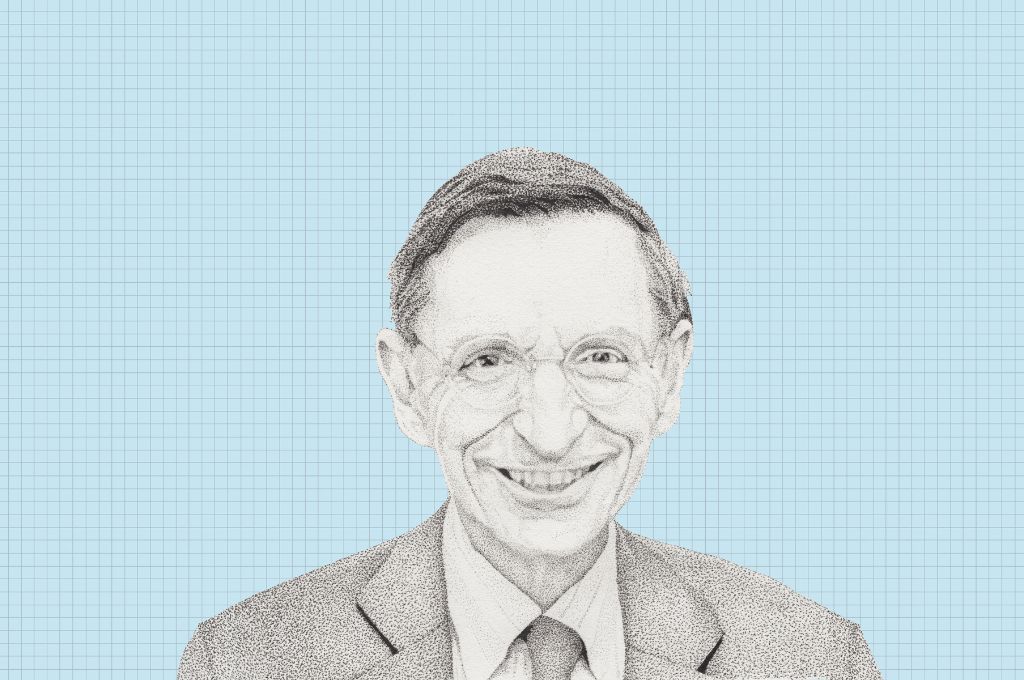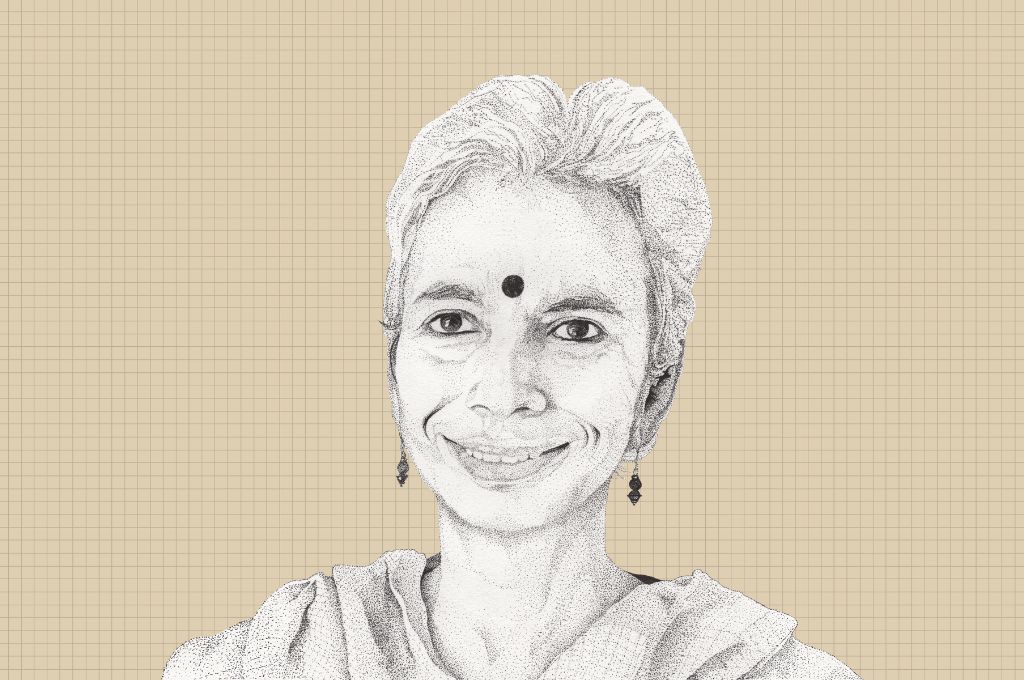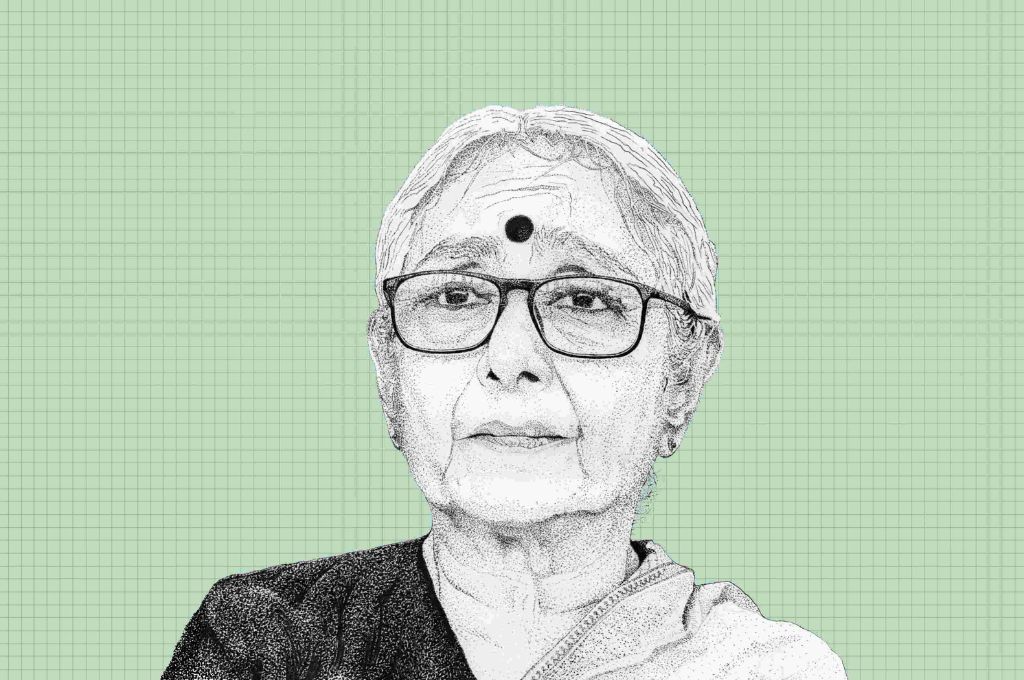Bezwada Wilson is a crusader against manual scavenging and the systemic discrimination that it perpetrates against the Dalit community. Born into a Dalit family that had been engaged in manual scavenging for generations, Bezwada channelled the outrage that stemmed from witnessing the injustice faced by his community to launch the Safai Karmachari Andolan (SKA), a grassroots movement to eradicate manual scavenging. Since 1993, SKA has been at the forefront of a societal and legal battle that has been fought by volunteers across the country and has led to the liberation of thousands of Dalits from this dehumanising practice. In 2016, Bezwada was awarded the Ramon Magsaysay Award in recognition of his efforts to “reclaim for the Dalits the human dignity that is their natural birthright.”
You have been running Safai Karmachari Andolan (SKA) for almost three and a half decades. What does it take to run a movement and sustain it for so long?
There has been no concerted effort to build something. There has been struggle though: a very real one. There was also anger and anguish, and that provided space for the movement to emerge. All we did was to consolidate that anger and channelise it. And that grew to become the Safai Karmachari Andolan. SKA is not even registered, because it isn’t a formal organisation—it’s more like a flow of movement—people keep coming onboard. And today there are nearly 4,800 volunteers across the country.
It still makes us angry—why do we still have this problem (of manual scavenging) after all these years, after so many efforts? There was anger when we started 35 years ago in Karnataka. And today, when we see women cleaning toilets, we feel the same anger. That has not changed with age, experience, or time.
We aren’t really doing anything to organise people; what we are doing is proceeding in one direction, possessed with this anger. And others who carry the same anger, and who believe in the direction we are taking, join us.
Related article: Photo essay: How sanitation workers live and work in urban India
How did you start building awareness about manual scavenging initially?
In the beginning, the biggest hurdle was that there was no language to talk about the problem. Over time we spoke about liberation, rehabilitation, and elimination (of manual scavenging). But these are words that came later. When we started, all we knew was that nobody should be doing this kind of work.
It has been a long journey since then. Within this journey, sometimes there’s been a churning, sometimes a bursting, sometimes fighting and arguing. But in this process, we also understood that we had been made into a community of slaves.
Before this realisation, we believed that we could only be slaves, and that we could never come out of it. We had internalised it. We felt we were the reason for our own slavery, because we were useless, we had no hopes or dreams; because we were illiterate, weak, and poor.
Then in 1991—during the centenary year celebrations of Babasaheb Ambedkar—I came across his literature. He said very clearly that we are not scavengers because we are poor, weak, or illiterate, or because we have chosen to be scavengers. It is because somebody else has made us scavengers.
It was then that we understood that somebody else had made us captive, that the caste system had done this to us. And adding to this was patriarchy, which made women within the community doubly worse off. It was then that we asked: how do we fight against all this?
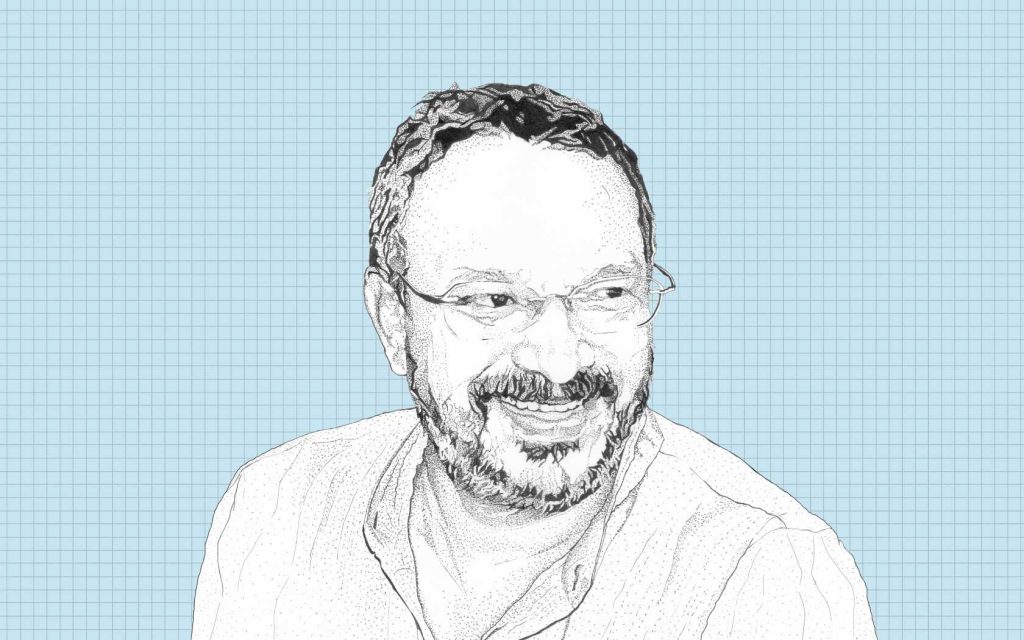
Illustration: Aditya Krishnamurthy
Soon, the non-scavenging community also started showing solidarity, because it’s not a fight against individuals; it’s a fight against the system. Solidarity and support from others gave us courage.
The liberation started when the manual scavengers themselves broke their own silence.
And the community started understanding the issue too. Nobody wants to clean somebody else’s shit, but circumstances made them do that. When we told them, “If others are living without cleaning shit, then why can’t you too?”, it got them thinking. The community that had been silent till then started speaking openly. The liberation started when the manual scavengers themselves broke their own silence on the issue and started speaking out.
And when individuals started believing in the issue, they automatically became part of the movement. They realised that they weren’t alone and asked, “What can we all do?”
We can go and break some toilets? Chalo! No? Okay, we will go and burn the basket instead. Let’s submit a memorandum to the authorities. Done! Now, while we are doing all this, should we be silent? Let’s shout slogans instead. Let’s prepare the slogans!
And so on, and so forth—everything develops organically. It develops and it moves; it develops some more and moves some more.
What people like myself and other senior people in SKA have done is to give this movement a direction. People like to take different directions. We tell them, “Let’s try going in this direction for some time; if it doesn’t work, we will go in the direction you are suggesting. If the first direction is successful, you can join it whenever you are ready.” The philosophy is to ‘leave no one behind’.
Over the decades that you’ve been working on this issue, have you seen changes in how the government has responded?
We have seen some change happen, but it has been very slow. Initially there was zero effort or interest from the government to listen to us. Over time, this has changed. But the government can’t have any one agenda forever. Their capacity and their durability is only five years. After five years, they change their pattern. As do nonprofits: they also change their pattern and their focus areas every 6-7 years. This means that our fight has to be continuous, and that we have to be at it all the time, if we want change to happen.
If agendas and priorities change within the government, how do you keep the momentum going?
The government will say that the problem is gone; they will create that perception too. And people will believe them. But it’s up to us to keep reminding people that the problem still exists.
So, we gather at Jantar Mantar, we talk to the media. And during all this, the women—the manual scavengers—are at the centre. Their words are more powerful than anybody else’s. When they demand justice and question the democratic government, and when they tell them that they have a responsibility to eradicate manual scavenging, people are forced to listen.
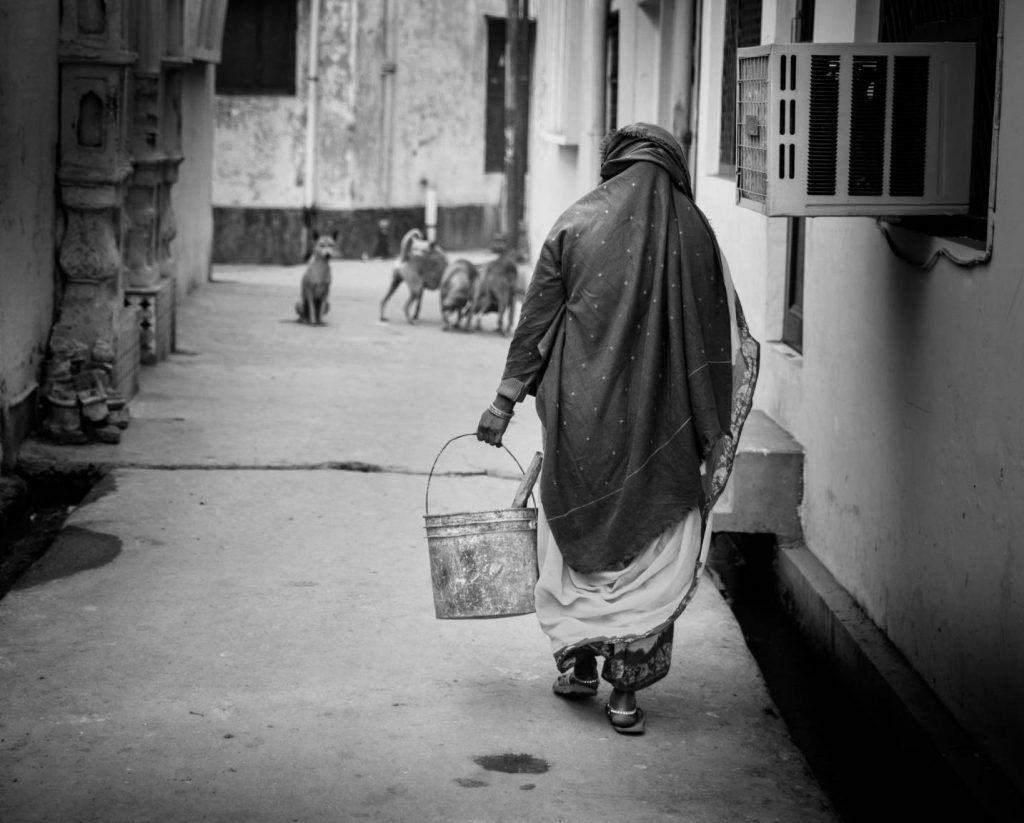
We are not scavengers because we are poor, weak, or illiterate, or because we have chosen to be scavengers. It is because somebody else has made us scavengers. | Photo courtesy: CS Sharada Prasad on Flickr
You changed the law around manual scavenging. How did you make it happen?
The movement brought pressure on the government to change the law. We first met government representatives in 2010, and were involved in drafting the Manual Scavenging Act. After three years, when the Act was brought into force in 2013, we thought that our job was done. And so, we stopped interacting with the government. But nothing really changed when it came to implementation, because the attitude and behaviour of the bureaucracy stayed the same.
No government officer, not a single one, has been tried for violating the law.
The greatest irony is that no government officer, not a single one, has been tried for violating the law. In some cases, FIRs have been filed but they haven’t reached the prosecution stage; charge sheets have been filed but they haven’t gone to trial.
We had fought for 20 years before the Act came into force in 2013. It’s been more than six years since then, and it feels like we’ve come to a standstill today. Not a single person has been punished. In many cases it’s the district magistrate/collector who is the culprit—the person who allows manual scavenging to happen in their district. If you sent even three of these collectors to prison for one week, then everything would change almost immediately. Today they are protecting their own life, but because of them, so many people have died cleaning their sewer lines and septic tanks.
Related article: Want social change? Give communities more agency
What does it look like when somebody is liberated from this practice and occupation?
When someone is liberated, we don’t celebrate the change. If 10 people have managed to leave the occupation, we don’t celebrate and applaud them, because it is their decision to come out of this profession. And so, whether they want to celebrate or not must be their decision as well.
Second, it is not our success, it is their success; their family’s success. This is why we haven’t counted this number either. People ask us: how many people has SKA liberated? We say that we don’t know. We never count. We know how many people are still working as manual scavengers. This is what we track and count. Because our aim is to see that number become zero. Unlike others, our aim is to not increase the numbers. Our aim is to diminish the numbers.
Tell us about the efforts to rehabilitate manual scavengers.
There have been no good efforts at rehabilitation. You can’t give women two buffaloes and some money and assume that they will be happy. Because when you are trying to change practices and attitudes that are 5,000 years old, there must be a comprehensive and a clear understanding of what rehabilitation and livelihood means.
You need to go village by village, and identify each woman’s potential. You cannot test for skills, because they haven’t had a chance to develop any skills so far. You must look for potential. You must look at the courage they possess. To do this, you have to go to them, learn about their strengths and understand what they can do and how you can help them, besides just giving them money.
In India, the government associates rehabilitation with just finance.
It is not only about finance. Finance is the last and least form of support required. But in India, the government associates rehabilitation with just finance. They hand out INR 10 lakh and that too in the form of a loan.
Or they will give a woman two buffaloes or goats, an auto rickshaw or some such, so that they can take a photograph of her driving. How can you expect her to drive a motor vehicle and earn a living from it when she’s never done this before? It’s better to give them a reasonable, dignified compensation every month, for sustenance.
The government must also make the effort to change society’s attitude and behaviour towards marginalised people. We need the people of this country to understand that manual scavengers have subsidised all of us.
People of this country need to understand that manual scavengers have subsidised all of us.
So, we are not giving them a subsidy, we are compensating them. For years, we have taken from them. These women have cleaned our latrines for a payment of a mere INR 30 per month per house. That’s one rupee for one day’s work! These women have given you subsidised services. So now it is time for you to compensate them for it. But that’s not the attitude of the government. They think of it as a subsidy, as freebies.
The middle class can’t understand this either. For them it’s all about, “I must get something.” And this kind of thinking is very bad for society. There is no happiness, no fraternity, no humanity.
—
Know more
- Explore this exhibition that tells the stories of sanitation workers around the world.
- Learn about manual scavenging and the systemic discrimination that it perpetrates from this report by Human Rights Watch.
- Read the acts and judgements that govern manual scavenging in India.




